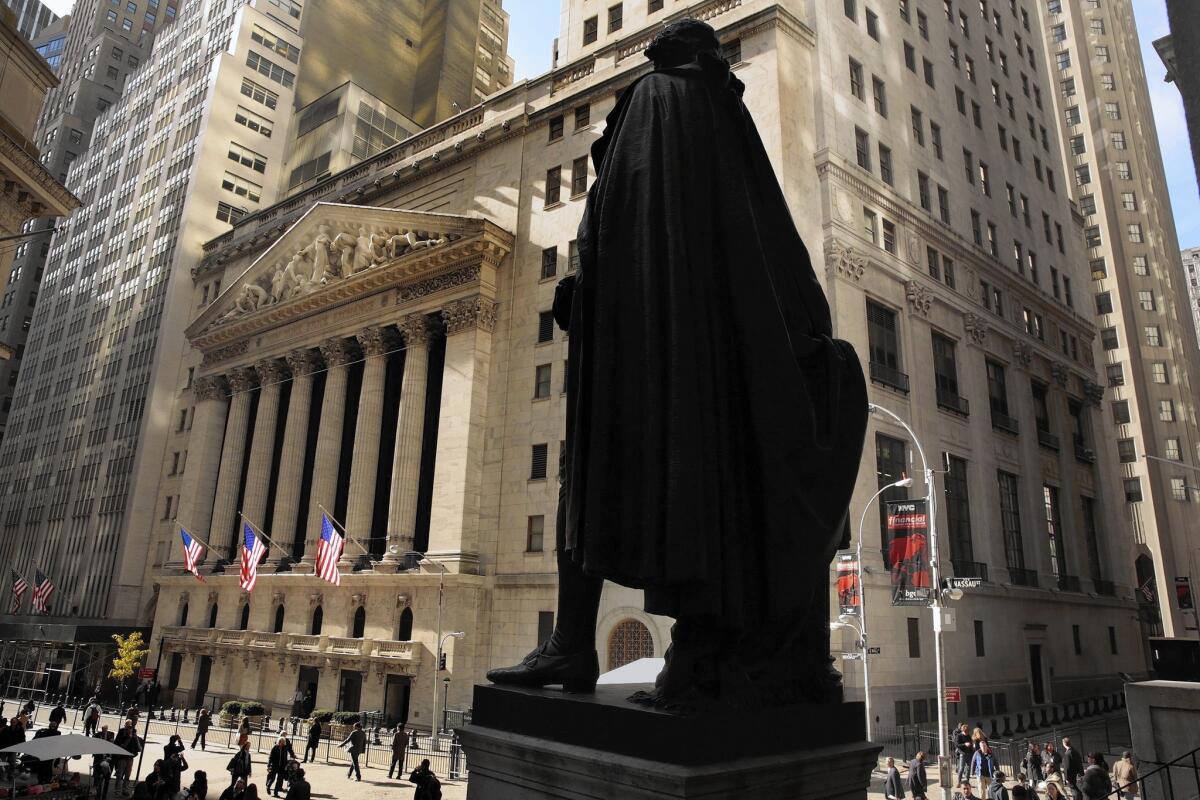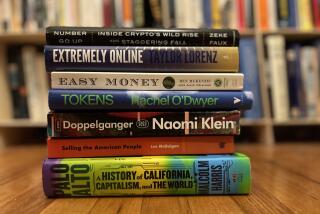‘Speed Limits’ examines modern society’s ever-quickening pace of life

- Share via
“Speed,” it seemed to writer Aldous Huxley, “provides the one genuinely modern pleasure.”
In a new book, “Speed Limits: Where Time Went and Why We Have So Little Left,” however, modernity’s deification of speed has more to do with pain than pleasure.
An ever-quickening pace of life threatens to plunge us into a nightmare that Huxley himself could scarcely have dreamed up.
“Speed Limits,” like other works such as “24/7: Late Capitalism and the Ends of Sleep” by Jonathan Crary, draws on the impact of newer, quicker technologies to form a sweeping critique of capitalism.
Mark C. Taylor, the book’s author and chair of the department of religion at Columbia University, sees humanity’s addiction to speed as a fundamentally religious phenomenon. The book is published by Yale University Press.
The tale begins with Martin Luther and the “birth of the modern subject.” From there, each broad historical trend — the industrial revolution, the advent of newspapers, the spread of literacy and the dawning of the technological revolution — are together contributors to the same need for speed.
If speed has become a religious infatuation, it is within the world of high finance that Taylor finds its cathedrals: glass-decked investment banks, which are the tallest buildings of their day, where traders worship at latter-day Bloomberg altars.
In “Speed Limits,” these high priests of finance and economics, galvanized by the sacred writings of Milton Friedman and Friedrich Hayek, are committed to the ritual sacrifice of time for money. Obsessions with the pace of economic growth are part of the same kind of sacrifice.
This infatuation with speed, Taylor argues, is rapidly swelling beyond finance into all areas of life, from (fast) food to (speed) dating. Even the human brain, he suggests, may be evolving to consume 140 characters rather than the lengthy texts still taught at universities.
In the final chapter, after outlining the perils of speed, Taylor confesses that he struggles to write in the city, preferring a converted barn in Massachusetts. The book similarly begins with an invocation of the pastoral.
The switch to the rural is illuminating. There is a sense that “Speed Limits” is essentially about the virtual geographies of urban financial centers and the lives of those caught up in them.
Beyond apocalyptic scenarios, however, it is unclear how the cult of speed stands to affect rural populations. Utopia — rural or otherwise — seems out of the question.
In his Nobel Prize address in 1992, economist Gary Becker offered an explanation. It is the “constant flow of time” that renders utopia impossible, he said, because “time becomes more valuable as goods become more abundant.”
The trade-off between abundance, with its associated higher living standards, and time complicates the book’s conclusions.
It elegantly lambastes the cruelties of urban life but evokes a pastoral nostalgia that, at times, fails to acknowledge the harsh realities of rural life. Taylor convincingly depicts the quasi-religious sacrifices of modern cities.
But the question never quite addressed is whether, in the many environments racked by impoverishment and unrelenting slowness, it might be worth sacrificing time for abundance. .
Thomas Hale is a Madrid-based reporter for the Financial Times of London, in which this review first appeared.
More to Read
Inside the business of entertainment
The Wide Shot brings you news, analysis and insights on everything from streaming wars to production — and what it all means for the future.
You may occasionally receive promotional content from the Los Angeles Times.










